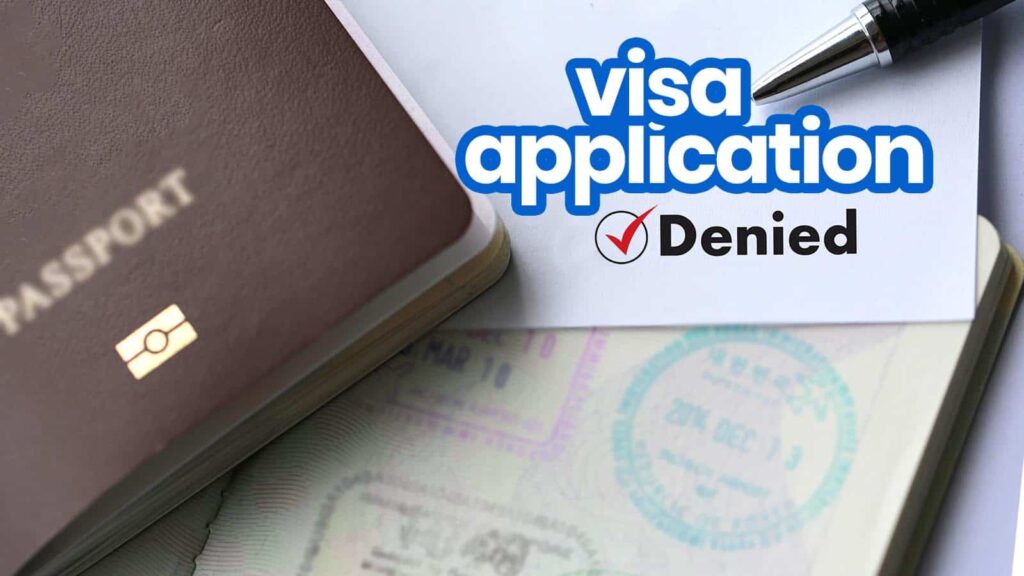Reasons for Student Schengen Visa Rejection
Studying abroad is a dream for countless students worldwide. The opportunity to immerse oneself in a different culture, gain international exposure, and access high-quality education is enticing. However, one significant obstacle for many stands in the way of this dream – the Schengen visa rejection.
While the Schengen Area offers a wealth of academic opportunities, obtaining a student visa can be challenging. In this article, we’ll explore some common reasons for student Schengen visa rejections and offer insights on navigating these hurdles effectively.
1. Insufficient Documentation
One of the leading causes of Schengen student visa rejections is insufficient or incomplete documentation. Students often underestimate the importance of thorough and accurate paperwork. This includes the application form, acceptance letter from the host educational institution, airlines ticket for visa, proof of financial means, and travel insurance.
Solution: Before submitting your application, meticulously review the requirements provided by the consulate or embassy. Seek guidance from your educational institution’s international office or a visa consultant if necessary. Ensure all documents are up-to-date and accurately filled out.
2. Inadequate Travel Insurance
Travel insurance is mandatory for Schengen visa applicants. Some students may underestimate its importance and overlook it altogether, leading to visa rejection.
Solution: Purchase comprehensive travel insurance that meets Schengen visa requirements. Ensure that it covers medical expenses, repatriation, and emergency care.
3. Unclear Study Plans
Visa officers assess whether your study plans align with your academic background and career goals. If your intentions are unclear or seem inconsistent, it can lead to visa rejection.
Solution: Write a compelling cover letter explaining your educational background, why you’ve chosen a specific institution and course, and how this will contribute to your future career. Make your study plan coherent and logical.
4. Lack Of Financial Proof
The ability to cover living expenses during your stay is a crucial aspect of a successful visa application. Visa officers need assurance that you won’t become a burden on the host country’s social welfare system. Inadequate financial proof is a common reason for visa rejection.
Solution: Prepare a comprehensive financial plan that includes bank statements, scholarship award letters, or affidavits of support. Clearly demonstrate your ability to cover tuition fees, accommodation confirmation for visa, and daily expenses.
5. Poor Interview Performance
Visa interviews are a critical part of the application process. If you fail to answer questions or exhibit nervousness during the interview convincingly, it can negatively impact your application.
Solution: Prepare for the interview by practising common questions and answers. Be confident, honest, and articulate when explaining your study plans, financial situation, and reasons for choosing the Schengen Area.
6. Criminal Record Or Security Concerns
Visa authorities conduct background checks, and if you have a criminal record or pose a security concern, your application may be rejected.
Solution: Be upfront about any past legal issues and provide relevant documentation, such as court records or certificates of rehabilitation. Seek legal advice if needed.
7. Dubious Travel History
A lack of travel history or a history of visa overstays can raise suspicions about your intent to return to your home country after your studies.
Solution: If you have limited travel history, provide evidence of strong ties to your home country, such as family, property, or a job offer upon your return.
8. Applying Too Late
Submitting your visa application too close to your intended departure date can lead to visa rejection, as it may not allow sufficient time for processing.
Solution: Apply for your Schengen student visa well in advance, following the consulate or embassy’s recommended timeline.
9. Failing To Show Strong Ties To Home Country
Visa officers want to ensure that you have compelling reasons to return to your home country after completing your studies. Failing to demonstrate these ties can result in a visa rejection.
Solution: Provide evidence of strong ties to your home country, such as family, property, or a job offer upon your return. Make it clear that your study abroad is a temporary endeavour.
Conclusion
Obtaining a Schengen student visa can be a challenging and daunting process, but it’s not impossible. Understanding and addressing the common reasons for visa rejection can significantly increase your chances of success.
Thoroughly prepare your documentation, demonstrate financial stability, clarify your study plans, and present yourself confidently during the interview. Moreover, always adhere to the guidelines provided by the respective consulate or embassy. Remember that persistence and determination are key to overcoming the hurdles in your path to studying abroad in the Schengen Area.


Post Comment